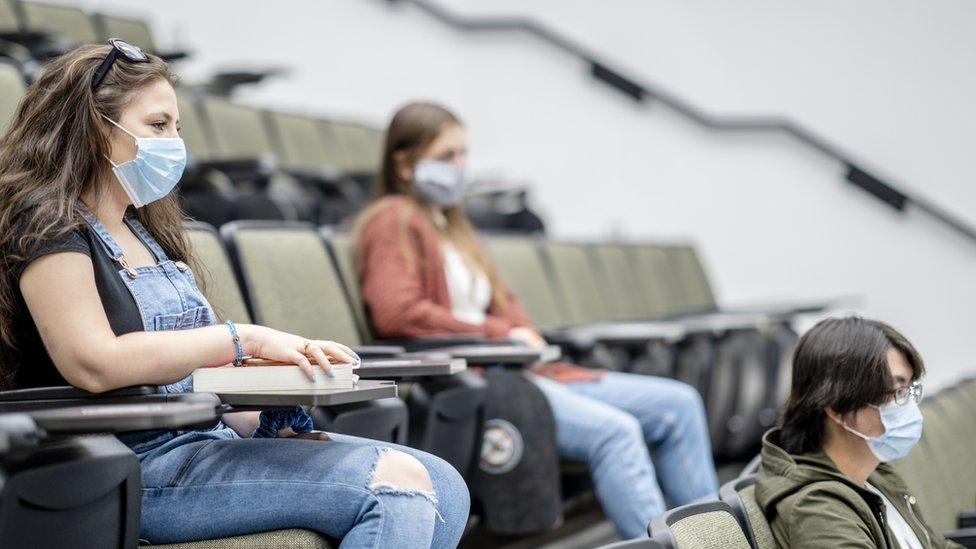SGS College launches maths course food delivery scheme
- Published
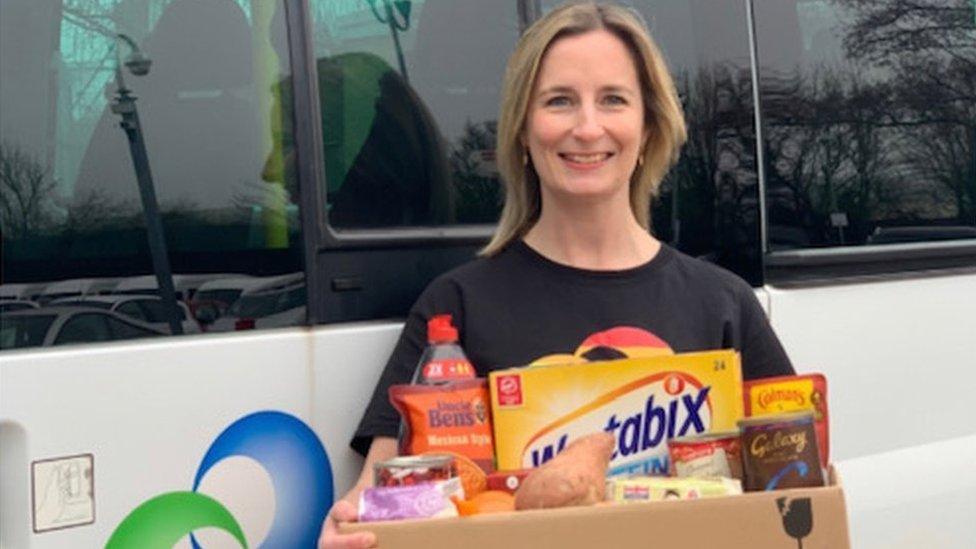
Laura Gaiger, project co-ordinator for SGS College, has been delivering the food parcels
A college is delivering food to people who enrol on a new maths GCSE course.
South Gloucestershire and Stroud (SGS) College, in Bristol, said there was a link between education and food poverty which had been amplified during the pandemic.
The Food for Thought scheme aims to encourage adults aged 19 plus to do a free maths GCSE course at home.
While studying on the eight-week course, college staff will safely deliver a food parcel worth £25.
The parcel will contain fresh fruit and vegetables, tinned items, staple ingredients and cleaning products. Learners will also be provided with learning materials by a member of the SGS home study team.
Matt Davis, from the college, said the demand for maths courses had been "on the rise during lockdown", with parents or guardians looking to upskill to support children with their schoolwork.
If the scheme is successful the college said it might extend the food parcel initiative to other subject areas.
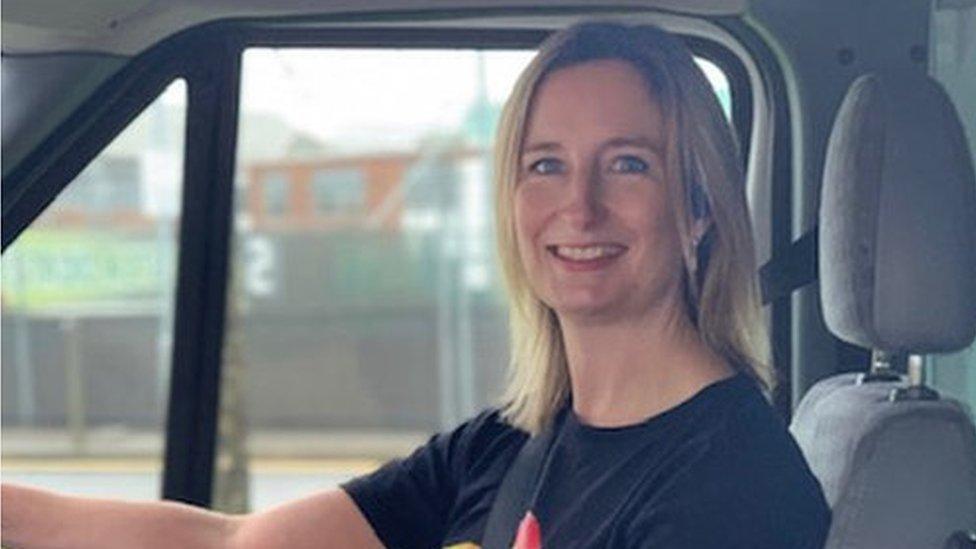
Laura Gaiger said the scheme had been "really positive"
Katie, who did not want to give her full name, from Patchway, said: "I've never gained any maths qualifications and since lockdown started I've been looking to change that.
"The bonus of food deliveries provides some much needed stress relief while I study."
'Inspire into education'
So far 120 people have enrolled on the course which is offered to households within a three miles radius of the Filton SGS College campus, or in Patchway, Emersons Green or Severn Beach.
Project co-ordinator Laura Gaiger, who has been delivering the food parcels, said it was a "really positive project to be a part of".
Mark Jones, head of academic studies at SGS College, added that they were "profoundly aware" of the impact lockdown was having on their 16 to 18 cohort but also their adult learners.
"This way we can combine supporting those people with a longer vision to inspire them into education or to think about their employment opportunities post-pandemic," he said.

Follow BBC West on Facebook, external, Twitter, external and Instagram, external. Send your story ideas to: bristol@bbc.co.uk , external
Related topics
- Published26 January 2021
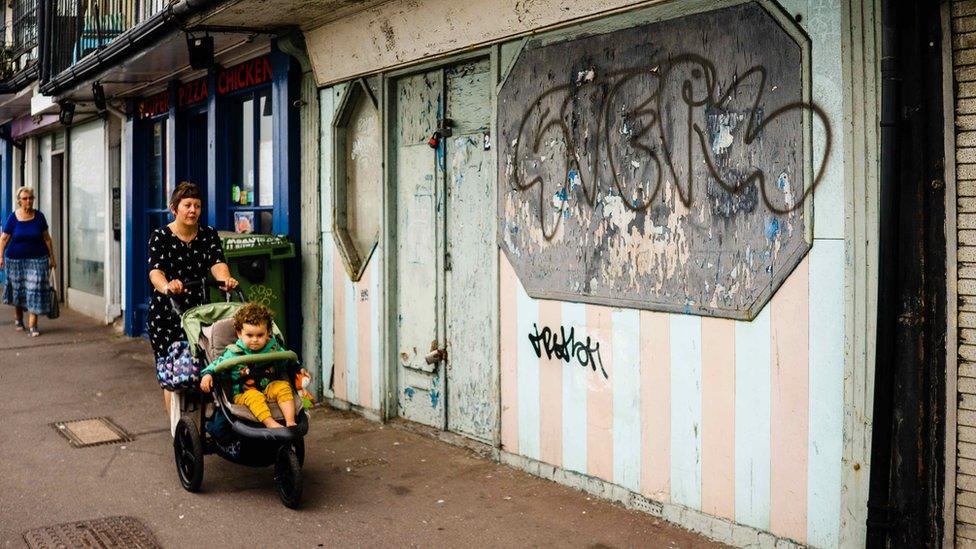
- Published29 September 2020
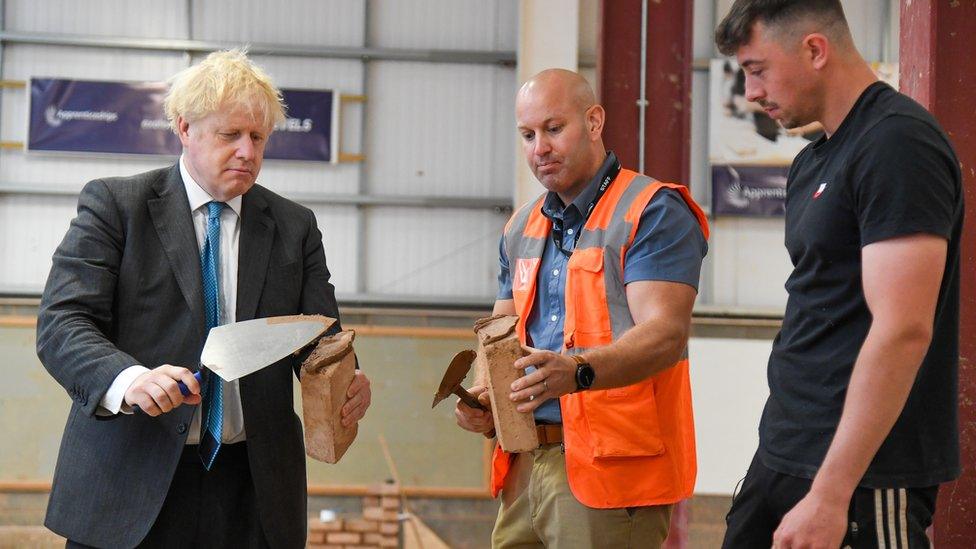
- Published27 October 2020

- Published7 February 2021
